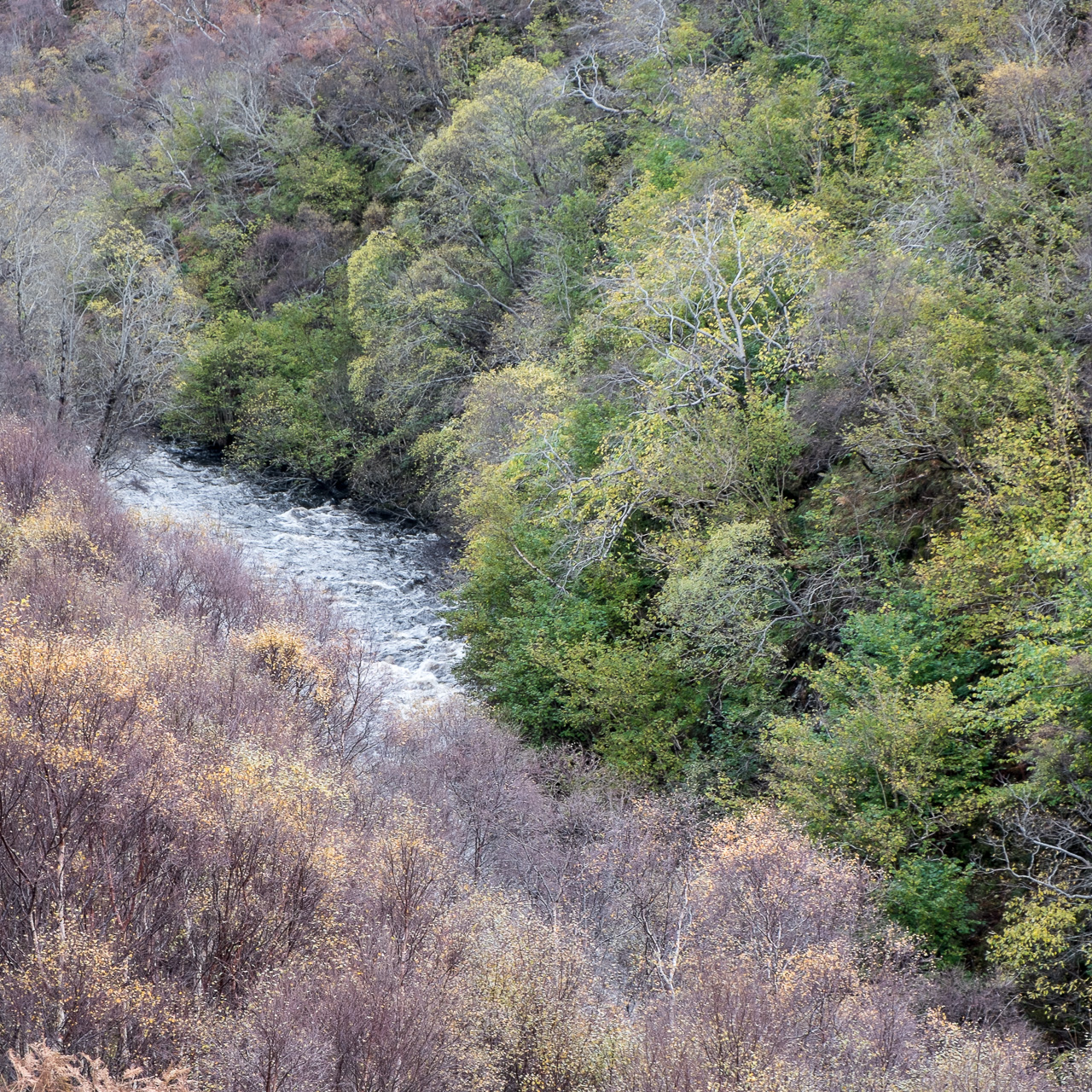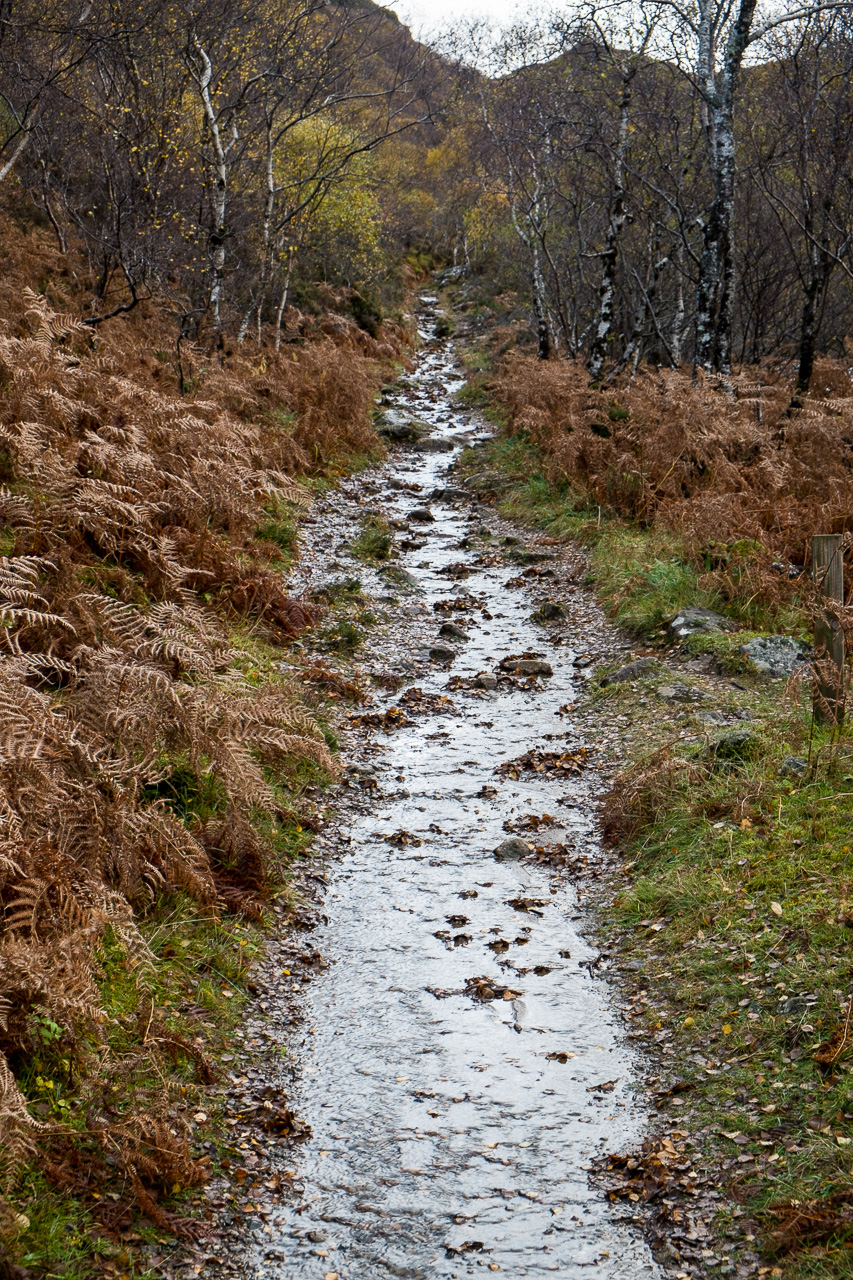One of the themes from my last post that really struck a chord was that of ‘aloneness’.
I received a number of nice emails and comments from people who offered their own feelings about the subject. It’s something I think about often and is an important part of my approach so I thought I’d share some more thoughts about it.
I'm at pains to point out that ‘being alone’ is not the same thing as ‘being lonely’. Loneliness would demand company where there is none. Aloneness is perhaps quite the opposite – taking oneself away from company, wanting to be on your own. Far from the noise of modern society our thoughts are given time to regroup, our senses heighten and the bond with the landscape that was once so intrinsic to our being begins to mend.
The term ‘rewilding’ has become popular recently not just in terms of restoring our environment to its natural order but also restoring ourselves to our natural state. Free from the clutter and the jumble of thoughts in my head, my first world problems and daily anxieties, I find life becomes a lot simpler. With a clearer head I feel like I am much more receptive to my environment.
I can only reflect that this is an essential component of my creative approach if I am to make my best work, and certainly my most ‘original to me’ work. When I’m distracted by external influence I find that I struggle to get into ‘the zone’.
It sounds like one of those awful clichés but ‘being in the zone’, ‘in the groove’, ‘being at one’, ‘zen-like’ and similar terms all refer to an actual mental state known as ‘Flow’. Flow manifests in many ways; time passes without you being aware. You do things not mindlessly but perhaps without conscious thought. You achieve things you thought you weren’t able. Generally things just seem to come freely and naturally.
I’m very conscious of this flow state from my past experience as a software developer. I was always amazed at how much code I could write when I was on top of a problem and left to get on with it. The code practically writes itself with almost subliminal input from me. I would always have music on but a whole album could pass by without me even being aware of a single song.
However if I’m interrupted by distractions - phone calls, people ‘swinging by my desk’ or evil-of-all-evils email - I’m pulled out of this focused and highly productive state. Suddenly it requires a lot of conscious thought and head banging to do exactly the same thing. If my tools aren’t working properly or if the problem is too big to get my head around I’m similarly pulled out of the zone, and it takes upwards of 30 distraction-free minutes to get back into it.
So when in my last post I dismissed the notion of being in the field with other photographers, that wasn’t me being anti-social. Indeed as a fairly sociable guy I’m aware I will chat away quite happily about football, the telly, joke about and whatnot. I know that this will interfere with getting into that zone, and I will interfere with others trying to do the same.
There are of course many benefits to working with others. It provides that camaraderie when spirits might otherwise be low. It provides safety when otherwise I’d be alone on a cold dark hillside. There are others to bounce ideas off or to give you encouragement when you’re struggling with your creative process. And you always learn a thing or two. Heck, it may even be more fun! There are definitely advantages working in this way. Neither approach is wrong, just different.
But what I would say is that to make my best, most honest and 'original to me' work then I need to do that alone. I need to get into that zone, minimise the risk of being pulled out of it and go with my flow as much as possible. I think this allows you to come closer to what your own personal photographic vision is.
Now, if I've won you over with the above imagine taking that aloneness and spreading it out over a number of days. A solo photographic trip really lets you forget about everything else and focus intently on your photography. No need to worry about getting home for a certain time (other than for a wee dram at last orders!). I can wander the land freely and just see what I come across. If I find something that interests me, I can spend as long as I like until I feel I’ve exhausted the possibilities or myself. Such freedom!
My time in Scotland was exactly this. Almost total freedom. I'd look at maps to see what interested me, go for a wander, go for a drive, go wherever. I found myself finding compositions more readily, building up a sort of alertness for a good shot. That instinct is always there but is perhaps that bit easier to tap into with focused time and heightened senses.
It's not without challenges of course. Over long periods aloneness can morph into loneliness and melancholy. I found it important to maintain a self awareness of my mood and energy. A call home at the end of the day always raised the spirits, as did sharing the journey with friends on Twitter.
I remember walking along River Kirkcaig towards Suilven under flat grey skies. Leg weary and low on energy, my supposedly waterproof boots leaking badly, light beginning to fail and my ankle (which I had badly sprained just before embarking on my trip) giving me jip it's fair to say I was in a pretty low mood. It may have been better to forego that particular walk, but it also helped build my mental endurance. A recent climb up Bleaklow, a mountain near my home in the Peak District, reminded me of that day as I battled wind, snow and, yes, waterlogged boots. It gave me extra energy to press onwards.
Another challenge is a feeling that you don't want to waste your time away. You feel a need to make images all day every day. It strikes me that creativity doesn't really work like that. It's not a bottomless pool of inspiration. Rather it can be quite shallow and wont to run dry pretty quickly if we're not careful. This is particularly true if you're in low spirits. "Can't be bothered" quickly dispels any remaining creativity.
Rather than pushing yourself to shoot at every opportunity it is important to ease up on yourself and take a break. You may cover fewer locations and make fewer photographs but I suspect the overall quality will be higher. Of course you then have to guard against comfort and laziness so there's a definite balance to be struck.
Perhaps aloneness and solo photography should be something that all photographers experience, a ‘walkabout’-like rites of passage. It's an experience not without challenges, but those challenges do make us stronger I think. We develop a better awareness of ourselves and a better understanding of our creative process and what we're looking for in our photography.
It comes to mind that aloneness is something we probably need to get used to if we're to master our vision of photography. I'm pretty sure that our photography heroes - with a burning desire to create fresh work - don’t do a ring round of their mates to see if they fancy going on a photography trip. They’ll put themselves through some degree of solo adversity to make that work, and make that work their own.
To mature as artists I think perhaps we need to start going it alone, metaphorically as well as physically.




